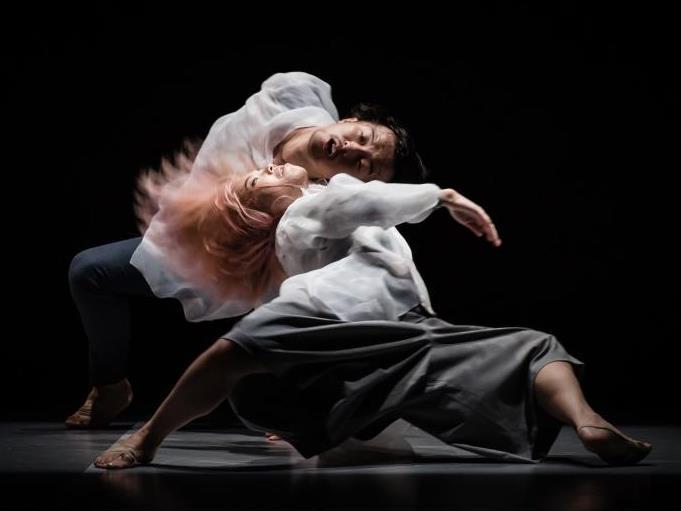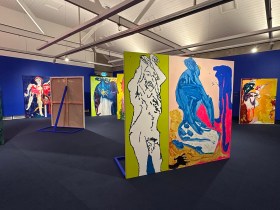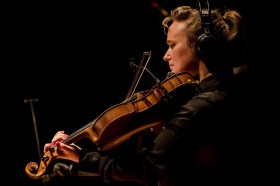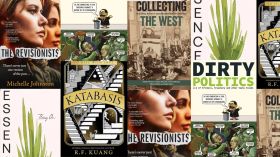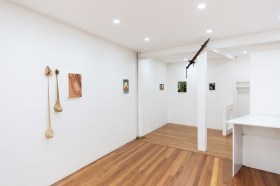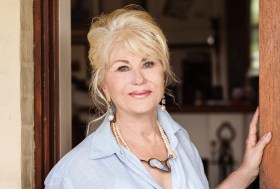Pure by T.H.E Dance Company, who will feature at Supercell festival. Photo (c) Bernie Ng.
LISA ROSE – FESTIVAL DIRECTOR, QUEER SCREEN
On Volunteering
Working across a broad range of industries Lisa Rose said she didn’t find her true passion until later in life.
‘I really took a long time to realise what my passion was,’ Rose told ArtsHub. ‘I worked in retail, hospitality and marketing analytics before I found the thing that made me want to get out of bed and go to work.’
That thing was a passion for telling LGBTIQ stories, which Rose said are still so underrepresented on screen. Her role as festival director sees her managing programming, building relationships, alongside marketing, to ensure those stories are given a platform.
Rose volunteered at QueerScreen – the organisation behind the Mardi Gras Film Festival – for five years and recommends offering your time to a cause you’re excited about as a way to open career doors.
‘So many arts organisations run on the smell of an oily rag and thrive on the dedication of volunteers,’ she said.
‘Volunteering is good for the soul, good for the organisation you are doing it for and also incredibly good for your own confidence and getting yourself out there so people can see what you are about and how dedicated you are. ‘
ROBERT HEATHER – ART MUSUEM DIRECTOR, NEW ENGLAND REGIONAL ART MUSEUM (NERAM)
On gaining practical experience
Running a regional art gallery is a task that requires an extremely varied skillset and to succeed in such a role, practical experience is a necessity, said Heather, whose job involves marketing and promotions; collection management and acquisitions; building maintenance; public programs, and volunteer management at NERAM.
Heather began his career in the marketing department at the Queensland Art Gallery in the early 90s which then lead to other positions where he developed the skills necessary to undertake his current role.
‘It was there [Queensland Art Gallery] that I discovered I really enjoyed working with artists, creative people and the curators who make an art museum program come to life,’ he said. ‘I have worked in large institutions such as state galleries and libraries as well as much smaller regional galleries and still enjoy the work over twenty five years later.’
Robert Heather (centre) with visiting artists in residence at the 2017 Myall Creek Memorial. Supplied
In order to thrive in this role Heather said an intimate knowledge of how museums and art galleries work is important.
‘There is no longer a clear career path in our sector so you need to be able to gain practical experience in a range of roles that may be outside your comfort zone,’ he said.
‘You need to be able to quickly learn about everything from building construction techniques to café management trends and retail operations. If you are really lucky now and then you may even be able to discuss some art!’
Read: 50 ways to find a job in the arts
YVETTE GRAY – ABC RADIO/TV JOURNALIST
On Commitment
For Yvette Gray, the idea of being anything other than a journalist was never a possibility, although she advises tenacity is required for those aiming towards the top.
‘In year seven we were given a career handbook at school and when I read the description of a journalist, I knew that was the career path for me,’ Gray said.
‘I moved to the country to take a reporter job in a town where I knew no one, studied a cadetship where I had to learn shorthand to become a graded journalist and worked after hours to network and develop good contacts to get exclusive stories.’
Gray adds:
‘Many people I speak to are under the illusion that being a TV or radio reporter is a glamorous job. It’s not. It’s hard work, long days, high pressure with short deadlines and shiftwork. Anyone who does this job has to be genuinely passionate about the stories they are reporting on, very organised and have the ability to think clearly and stay clam under pressure.’
KATH MELBOURNE – CREATIVE PRODUCER SALAMANCA ARTS CENTRE
On mentors
‘I knew from a young age that I wanted to work in the arts, and that has drawn me to a lot of interesting roles and people,’ said Melbourne, whose job at the Salamanca Arts Centre involves financing, programming, curation of ideas and looking after community partnerships.
For Melbourne, one of the keys to success in a role similar to hers is identifying your values and then seeking organisations and people to work with who align with these ideals.
‘Talk to others that have undertaken that role, seek out organisations, mentors and bosses that have similar values, but perhaps different ideas,’ she said.
Melbourne said she was lucky to find mentors in previous roles which were pivotal points in her career.
‘My early thirties were an incredibly satisfying time at The Australia Council with a great boss in Libby Christie who fostered, encouraged and gave me freedom to develop programs and develop as a leader. I learnt so much,’ Melbourne admits.
KATE USHER – CURATOR, SUPERCELL DANCE FESTIVAL
On expanding your skillset
Kate Usher’s role as the curator of Brisbane’s contemporary dance Festival Supercell is to find brilliant artists and strategic partners to create beautiful and meaningful experiences.
Initially training has a dancer, Usher’s career took a twist at the commencement of her tertiary dance degree which forced her to re-evaluate her contribution to dance.
‘Once I got accepted into the dance course, commenced orientation week, and summed up my peers, I realised that I was only a competent dancer – striving to be a company dancer is being an elite athlete and I have knobbly knees and weird toes,’ Usher laughs. ‘I needed to find out how else I could be involved, work and develop a career in this industry I loved.’
Usher said those looking for a similar role, must be flexible in their approach.
‘Looking back on the last 10 years since graduating from my dance degree at QUT, the key moments have been expanding my skill set beyond the aesthetic, seeking every opportunity to understand the many facets of our sector and giving it a red hot crack,’ Usher reflects.
‘For example, I can’t rig a light without getting stuck up a ladder, but I know the implications for the experiential and performative importance of the perfectly focused light as well as the knock-on effects for technicians, venues and budgets.’
Supercell Dance Festival from 10-18 Feb
QueerScreen presents Mardi Gras Film Festival from15 Feb-3 March
Transition at Salamanca Arts Festival from Jan 26-5 Feb

